I’ve spent the last two years working on Incredipede and I’m finally about done with it. That means I get to enter that wonderful world of prototyping! Not having a game to work on is the best because looking for a game to work on is super fun, except for the parts that suck. The part that sucks the most is having a new idea and not knowing if it’s any good. To close this knowledge gap I wrote some designers I know who have had success to find out how to tell if your prototype is any good.
There are a lot of game ideas out there and it’s not obvious which ones are going to be fun. I have a file on my desktop called gameIdeas.txt which is a list of over 40 ideas ranging from “One button game: afghan kite fighting” to “knitting!…?”. Picking which game to start is easy, which one makes your mouth salivate the most? Picking when to give up on it is much much harder for me. Even when a game isn’t fun after months of work and exploring I still feel like just one change, one decision, could make it great. On the other hand, the only two of my prototypes that have worked out and been fun enough to finish were fun right from the start. Fantastic Contraption and Incredipede were both fun (for me) almost immediately and Sarah’s games, Rebuild and Word Up Dog, were fun right away. Is that a general rule? I wrote a psudo-random collection of eight games designers I know to try to find out.
I wanted to know if their successful game was fun right away, I figure if all successful games are fun right away then I can skip the months of grinding on ideas that seem promising but just aren’t working out. So without further ado, here is the data:
Derek Yu, Spelunky
Was it fun right away? Yes
“Spelunky was honestly the smoothest development I’ve ever had”
Justin Ma, FTL
Was it fun right away? No
“We felt the idea (which was very abstract) could be fun but the actual prototypes were not enjoyable for months. We could see hints of interesting gameplay but it wasn’t really fun for a long time.”
Jonathan Blow, Braid/The Witness
Were they fun right away? Yes
“Braid was fun in the first week. The Witness probably took 2-3 weeks, if only because it is 3D”
“I do think this depends on one’s level of design experience, though. Part of being a good designer is being able to just home in on what is really good, without having to spend a lot of time slogging through mud.”
Jan Willem Nijman/Rami Ismail, Radical Fishing
Was it fun right away? Yes
“At Vlambeer, most games come together within a few days. If they’re fun, we work on them for a few weeks. If they’re fun to work on for a few weeks, we turn them into a project (or not).”
Dan Cook, Triple Town/Leap Day
Was it fun right away? No
“Of the prototypes I’m working on now, I’d say that the best ones convert over a few weeks and then we really know we have something fun after 2-4 months.”
Marc ten Bosch, Miegakure
Was it fun right away? Yes
“Miegakure was the third prototype in a series of ‘games in higher dimensions’ prototypes. Ignoring the first two prototypes, Miegakure is incredibly similar to its original vision”
Michael Boxleiter/Greg Wohlwend, Solipskier/Gasketball
Were they fun right away? Solipskier: Yes, Gasketball No
“I do think it’s important to get something down that’s interesting as soon as possible, something that you can play over and over, but there are a lot of games that I would never be able to make if it had to be fun in a few days or a week. It’s really hard to gauge early on, and I don’t really have any good rules even now.”
Mike also mentioned that most games he’s worked on have been fun right away with a few exceptions.
Cactus/Dennis Wedin, Hotline Miami
Was it fun right away? Yes
“It was fun straight away from when the basic gameplay had taken shape, which took less than a week.”
So 5.5 out of 8 replies were “it’s fun right away”. Clearly not every successful game is fun in the first week but a lot of them are. And if you can make a great game without months of smashing your fists against the wall then why not! I like that Vlambeer has gone so far as to build this into their process, judging games by how quickly they become fun rather than how fun they might be down the road. Marc’s aproach of exploring the same design space with totaly new games is also very appealing. If I want to make “knitting!…?” it makes sense to try a bunch of disparate ideas in the design space instead of settling down with one and trying to force it to work.
FTL and Dan Cook are the counter-examples, and they are strong counter-examples. FTL won the Excellence in Design Award at GDC this year and I personally respect Dan Cook as a game designer more than just about anyone (Leapday is totally amazing). Standing opposite to Vlambeer, Dan has built the months-long search into his process and the resulting games speak for themselves. Clearly you can make great games by taking a rough idea and through teasing, exploring, and experimenting make it into something wonderful.
But that’s the thing, all that teasing… I hate stressing about whether I should keep working on a “promising” project or whether I’m groping in a blind alley. The fun-right-away rule takes away that stress entirely and maintains a good chance of finding a great game. It’s the way I’m going to prototype my next game. It’s all dim sum from here on out!

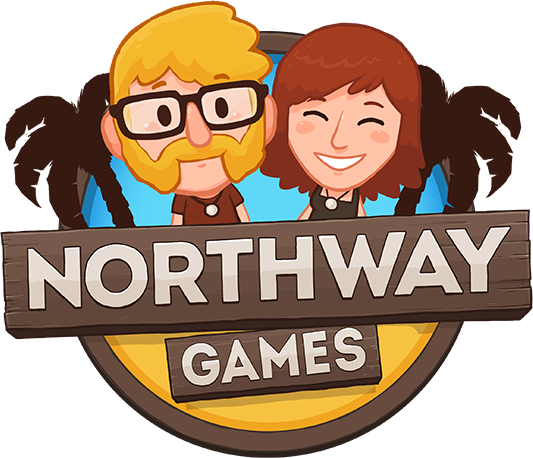


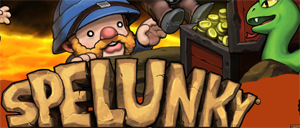

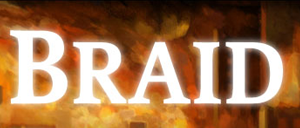
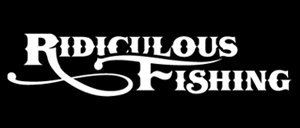
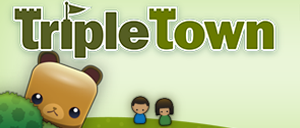

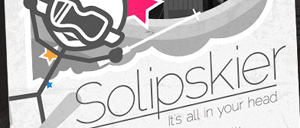

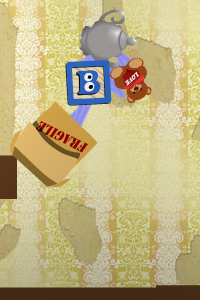

Comments
32 responses to “How Does a Good Game Start?”
I was really hoping for in-depth interviews from these devs, not a single yes or no. Maybe a part 2?
I always intend to do a quick prototype and throw it away if it isn’t fun, but ***siiiiigh*** I fall in love too easily.
I’ve been tweaking a strategy card game for weeks now, even though its first playtest bombed horribly. Just can’t let it go.
I sometimes think of Jon Blow’s description of an ideal project being like a gold mine in which all the gold is easy to find, and your problem is just being able to carry it all. Then I try to eke out the fun, and feel guilty about it.
Really cool, thanks!
It makes me wonder… was Dwarf Fortress fun right away ?
What I’m wondering here is whether there is a dissonance between how these designers define the term “right away”. Some of them actually stipulated that it was or wasn’t fun in the first couple of weeks or first few days, but others don’t make that distinction. I wonder if a better way to phrase the question would be “was your game fun in the first 2 weeks?”. Even then I wonder how long some of those ideas ripened in their heads before even starting on them? So another way to expand upon that might be, “how long did it take to get from initial conception to playable and fun?”. My assumption is that it will even these results out a little. I also think that any amount of variation would probably directly correlate to how long they had been designing and developing games before they conceived their example game. Not to discredit anyone, but for example, Jon Blow’s “time to fun” rate might be a little shorter than, say [anyone else on this list].
[…] NORTHWAY Games » Blog Archive » How Does a Good Game Start? When should you ditch that game idea that isn’t working out? I ask a bunch of peeps (Spelunk, FTL, Miegakure, etc..): http://t.co/Cc6BJktRcN […]
Really great read!
Your approach to these questions makes a lot sense to me since the time to produce a prototype will vary – depending on the type and complexity of the game.
One little thing that I noticed is that many of the games that were not fun right away involve extended (puzzle-type) logic. I wonder if that type of game is harder to prototype in general….
A lot of people are drawing certain conclusions like “all the puzzle/system games aren’t fun right away” or “all the games with embodied avatars are fun right away”.
This is a 10 game dataset! Don’t expect to be able to draw conclusions like “all systems games take longer than a week” or the oppostite from this. There is a huge variety of games and variety of people who make them.
This shows that there are successful games that are fun right away and that the opposite is also true. For someone like me, who tends to belabor an idea for months, it’s useful to know that a lot of great games don’t take that kind of labour.
Also, Sarah’s game Rebuild is a pure systems game and was fun in the first few days.
I’ve had a game idea in my head for years now. I don’t know if it’d be any fun. At this point I should just completely ignore it and just look at new ideas when I have the time to prototype something.
I think what’s really important is the type of game you’re making. Many games begin in development with some sort of core toy, and if this toy is fun, the developer moves on to craft a game around this toy. Other games (usually of a more strategic nature) Don’t have this core toy at the beginning because the idea depends on a lot of interacting parts interacting on the whole to realize it’s “fun potential”. So it makes sense that FTL and Dan Cook’s games aren’t immediately fun because they have this strategic edge with no real core toy to play with. They need the whole set of interactions to even function, but once they do, they’re usually great fun and very deep experiences.
At GDC this year, three Spry Fox folks (including Daniel Cook) said that they iterate prototypes quickly to find the fun behind a game idea, and that it generally takes two weeks to two months. Longer than that and they currently feel it’s best to stop pursuing it.
It really varies a lot. I personally tend not to have a lot of ‘instant fun’ games.
There’s also a lot of definitions of ‘fun’.
1. Fun that is visible to the designer
2. Fun that is visible to an educated consumer of prototypes (Someone who can see past balance issues and art.)
3. Fun that is visible to an educated gamer with slight handholding through the learning phase.
4. Fun that is visible to a non-gamer with no handholding.
The dates also vary a lot due to the project. Like we are working on one project that is easily going on 6 months now. Initially folks were part time and it is in a genre that I have almost zero experience making. Yet despite not being even stage 3 fun, I still have faith it will turn into a delightful game.
Yet, just to keep costs down, we are constantly trying to push prototypes towards fun faster. A hard problem. :-)
take care,
Danc.
buy cheap high pr backlinks
ssaojrrdf yxosv hnrqscv ptjz cbmzuudwixuvpug
… [Trackback]
[…] Find More Info here to that Topic: northwaygames.com/how-does-a-good-game-start/ […]
… [Trackback]
[…] There you will find 4846 additional Information on that Topic: northwaygames.com/how-does-a-good-game-start/ […]
… [Trackback]
[…] Info on that Topic: northwaygames.com/how-does-a-good-game-start/ […]
… [Trackback]
[…] Find More to that Topic: northwaygames.com/how-does-a-good-game-start/ […]
… [Trackback]
[…] There you will find 20934 additional Information to that Topic: northwaygames.com/how-does-a-good-game-start/ […]
… [Trackback]
[…] Find More here to that Topic: northwaygames.com/how-does-a-good-game-start/ […]
… [Trackback]
[…] Info to that Topic: northwaygames.com/how-does-a-good-game-start/ […]
… [Trackback]
[…] Read More Info here on that Topic: northwaygames.com/how-does-a-good-game-start/ […]
… [Trackback]
[…] Find More to that Topic: northwaygames.com/how-does-a-good-game-start/ […]
… [Trackback]
[…] Read More to that Topic: northwaygames.com/how-does-a-good-game-start/ […]
… [Trackback]
[…] Read More Information here on that Topic: northwaygames.com/how-does-a-good-game-start/ […]
… [Trackback]
[…] Read More here on that Topic: northwaygames.com/how-does-a-good-game-start/ […]
… [Trackback]
[…] Find More to that Topic: northwaygames.com/how-does-a-good-game-start/ […]
… [Trackback]
[…] Read More Info here on that Topic: northwaygames.com/how-does-a-good-game-start/ […]
… [Trackback]
[…] Find More on to that Topic: northwaygames.com/how-does-a-good-game-start/ […]
… [Trackback]
[…] Read More Information here to that Topic: northwaygames.com/how-does-a-good-game-start/ […]
… [Trackback]
[…] There you can find 33836 additional Information to that Topic: northwaygames.com/how-does-a-good-game-start/ […]
… [Trackback]
[…] Read More on to that Topic: northwaygames.com/how-does-a-good-game-start/ […]
… [Trackback]
[…] Find More here to that Topic: northwaygames.com/how-does-a-good-game-start/ […]
… [Trackback]
[…] Information to that Topic: northwaygames.com/how-does-a-good-game-start/ […]